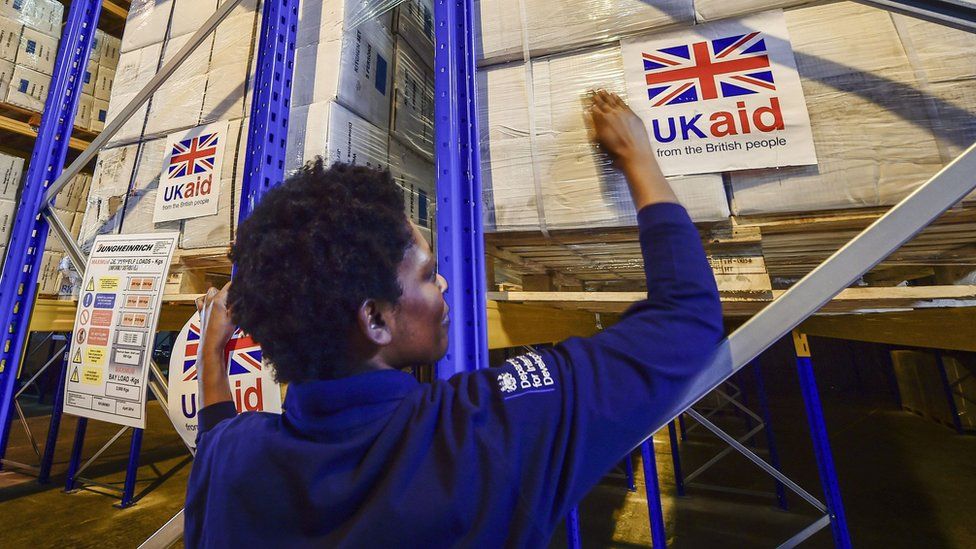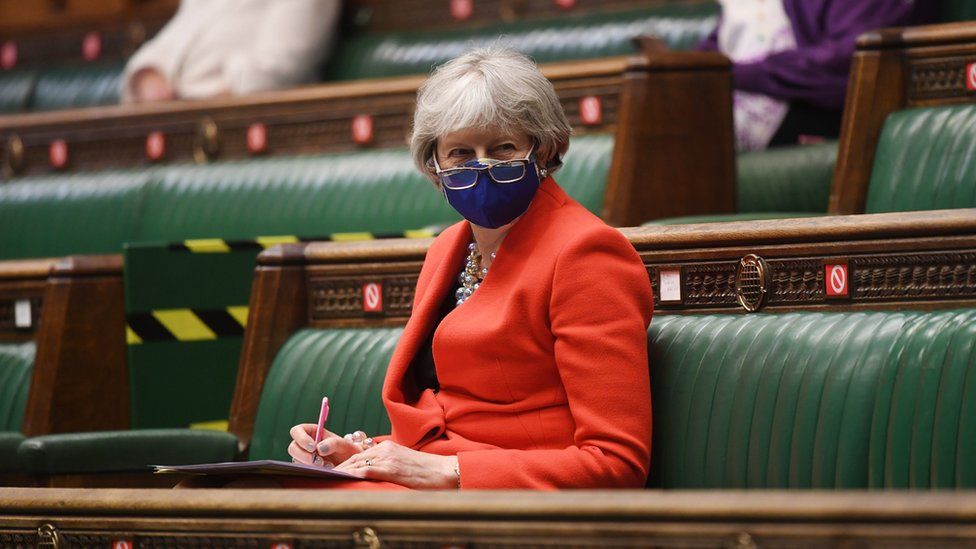Foreign aid: Rebel Tories blocked in bid to reverse cutson June 7, 2021 at 5:15 pm
The Commons Speaker did not allow the attempt – but said MPs should be able to vote on the issue in future.

image copyrightPA Media
A group of Conservative rebel MPs has been thwarted in its bid to overturn £4bn of government cuts to the overseas aid budget.
They had suggested returning spending from 0.5% to 0.7% of national income next year through a bill dealing with the UK’s new research agency.
But the proposal was ruled inadmissible by Commons Speaker Sir Lindsay Hoyle, meaning it will not be put to a vote.
However, he called on ministers to give MPs an “effective” vote on the issue.
Sir Lindsay said the rebels’ amendment was not within the remit of the law they wanted to change – meaning it could not be allowed.
Despite this, he said ministers should give the Commons “the respect it deserves” and find a way to allow MPs an “effective decision” on the target.
He has granted the rebels a three-hour emergency debate on Tuesday to put their point across – although there will not be a binding vote on their desired changes.
A leading rebel, Tory MP Andrew Mitchell, claimed the group would have had enough support to defeat the government if the vote had taken place.
He said maintaining the cuts would lead to “hundreds of thousands of avoidable deaths” in affected countries.
He had previously pledged to “use all the parliamentary procedures we can” to force a vote on the issue if their amendment was not selected on Monday.
The government reduced aid spending from 0.7% to 0.5% of national income this year, without changing the 2015 law that made the target binding.
Ministers have argued this legislation allows the target to be temporarily missed in exceptional circumstances – and says the Covid pandemic counts.
But the decision not to give MPs a vote on the issue has angered a number of backbenchers, and led to the threat of legal action.
Ministers will be relieved to avoid a vote on the aid cuts, ahead of welcoming world leaders from the G7 group for a summit in Cornwall this weekend.


The failure by MPs to secure a vote on the government’s aid cuts does not mark the end of the story.
While the rebels may have been stymied by a parliamentary technicality, the Speaker made it very clear he wanted the Commons to having a meaningful vote on the issue soon.
And if it did not, then he would “look at other ways we can move forward”.
In the formal language of a parliamentary speaker, this is a threat that if the government does not arrange a vote itself, he may allow the next amendment the rebels table.
Their problem, however, is that a legislative opportunity may not now come until the autumn.
It means a summer of continuing uncertainty for aid charities, and those they help.
As for the government, it has achieved its immediate aim of avoiding what could well have been its first parliamentary defeat.
But it still faces another day of criticism for its international aid cuts in the same week it hosts the G7 summit.

The government says aid spending will return to the higher 0.7% level “when the fiscal situation allows” – but has not specified a date.
On Sunday, a group of charities and academics warned “devastation” caused by the cuts would lead to families going hungry and girls missing school.
The group, including Oxfam and ActionAid UK, also argued it would undermine the UK’s international standing and its hosting of the G7.
Lee Margaret Webster from ActionAid told the BBC the cuts had forced a project tackling violence against women and girls in Rwanda to close.
This included shutting down seven shelters providing sanctuary for girls escaping domestic violence, she said.
Earlier, Solicitor General Lucy Frazer said the UK was a big aid donor but added: “We have a duty to ensure we protect our citizens here as well as those in the rest of the world.”
And ex-Work and Pensions Secretary Esther McVey argued the UK shouldn’t “end up going into deeper debt in order to finance other countries”.
Writing in the Telegraph, she said the UK should instead help poorer countries “trade their way out of poverty”.
“If more and more aid was the solution, large parts of Africa would have escaped all poverty decades ago,” she added.

image copyrightUK Parliament / Jessica Taylor
The rebels had wanted to amend legislation setting up the Advanced Research and Invention Agency – a new body designed to conduct “high risk” research.
Their amendment would have forced the organisation to make up any shortfall from the 0.7% target from January 2022.
Sir Lindsay said he shared the “frustration” of MPs about the lack of a vote to date – but after consulting officials, he decided their amendment was outside the scope of the bill, meaning under Commons rules it could not be debated.
He added: “I expect that the government should find a way to have this important matter debated and to allow the House formally to take an effective decision”.
Labour – which along with the Lib Dems and SNP supported the amendment – called on ministers to come up with a “clear timeline” for reversing the cuts.
The party’s shadow international development secretary Preet Kaur Gill said the “strength and depth” of support among MPs for the move was “clear”.
